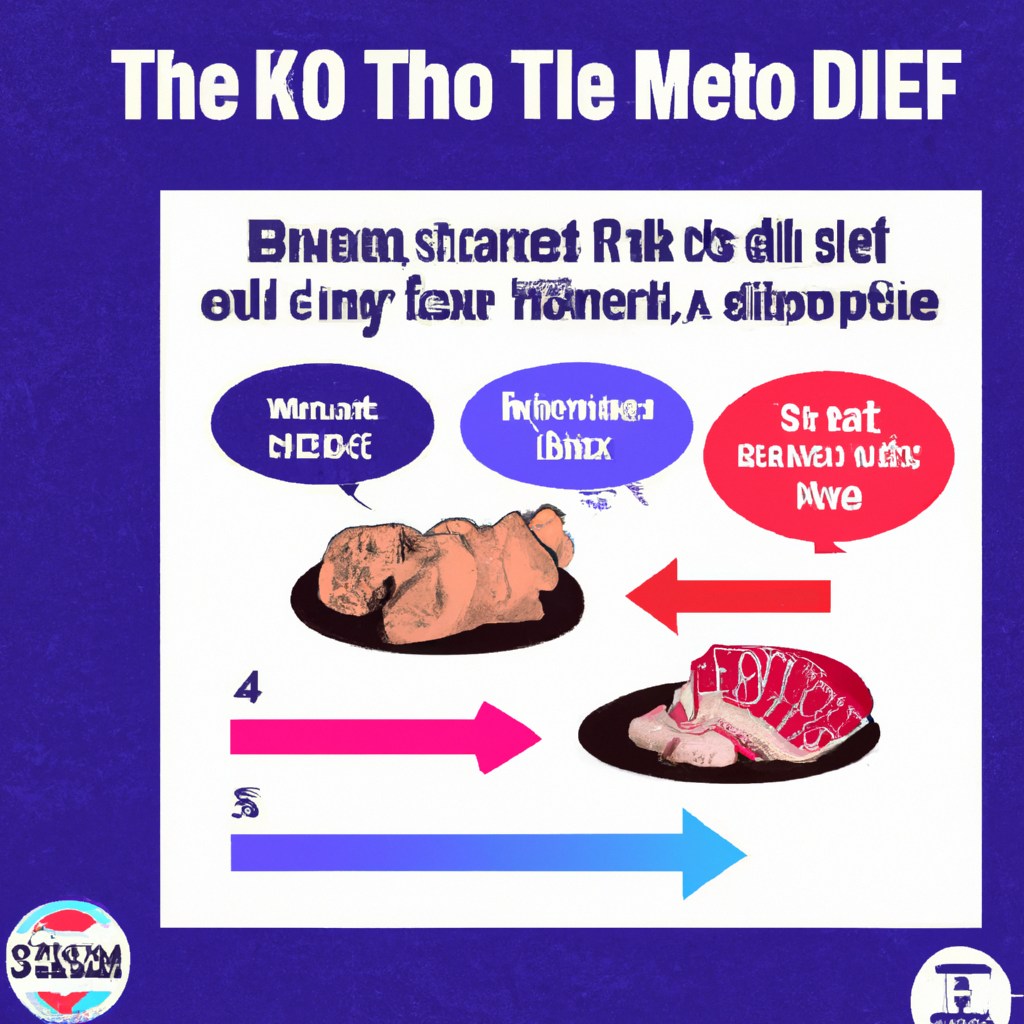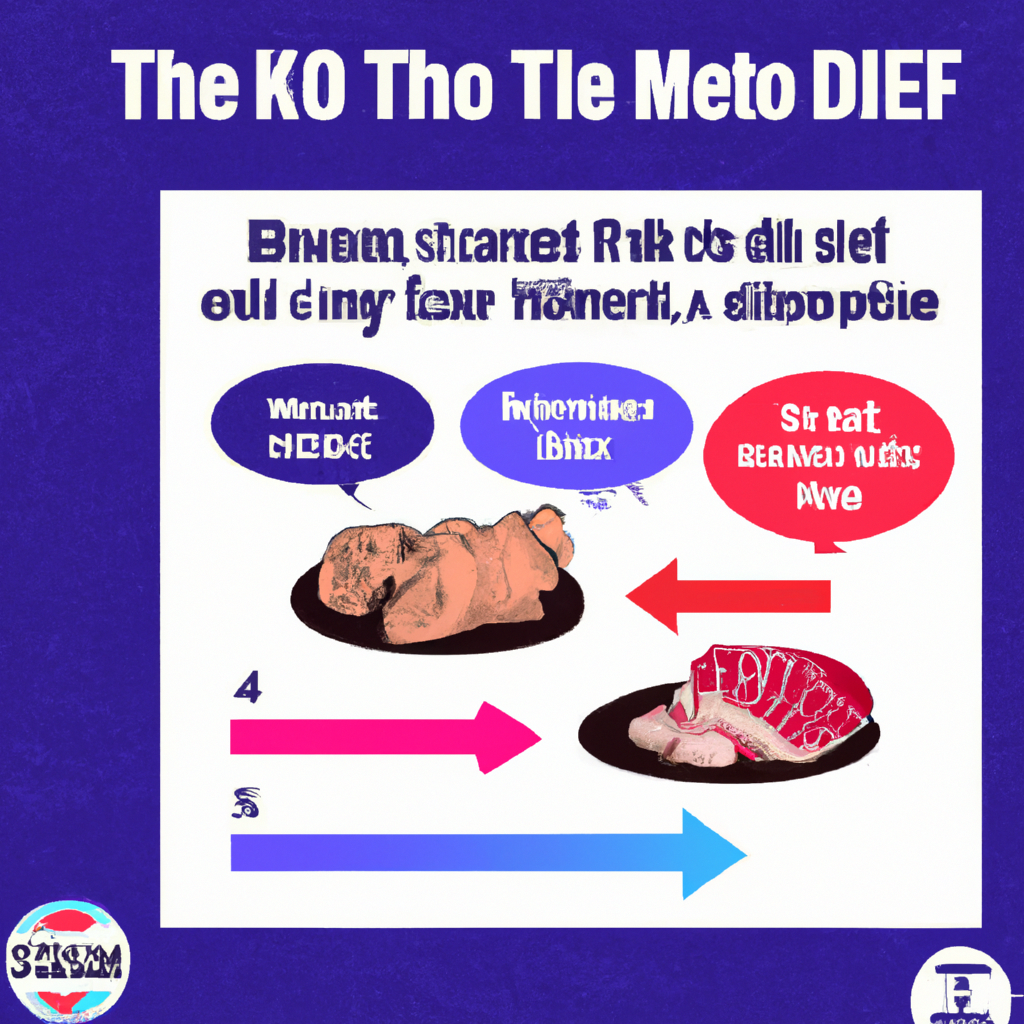In “Understanding the Keto Carnivore diet,” you will explore a fascinating dietary crossover that is gaining attention in the health and wellness community. Picture a diet where your primary food sources are meats and fats – no vegetables, no fruits, just animal-based products. You’re thinking of the Keto Carnivore diet. Initially, it might seem counterintuitive or extreme, but as you dig deeper into its principles, it could hold surprising health benefits for the right individuals. The details of the diet might seem confusing at first glance – fear not as this guide is here to unravel those complexities and enlighten you on this trending method of eating. Buckle up, as the journey is about to get meaty!
The Basics of the Keto Carnivore Diet
In the world of health and fitness, diet trends come and go, and one that has been gaining momentum recently is the Keto Carnivore Diet. So, you may be wondering: what exactly is this diet about?
What is a Keto Carnivore Diet?
Simply put, a Keto Carnivore Diet is a way of eating that combines the principles of a Ketogenic diet (low-carb, high-fat) with a Carnivore diet (meat-based). The goal is to take advantage of the benefits of both: entering a state of ketosis (burning fat for fuel) while consuming meat-based and animal-sourced foods.
Origins and History of the Diet
Although seemingly a new trend, the roots of a Keto Carnivore diet can be traced back to our ancestors. Early humans were hunters and gatherers, and the diet is based on the notion that we are essentially carnivorous animals designed to eat meat. The ketogenic aspect is a more modern development, as researchers started exploring the benefits of low-carb, high-fat eating around the mid-20th century.
Understanding Ketosis
One of the main tenets of the Keto Carnivore diet is achieving and maintaining a state of ketosis, but what exactly does that mean?
Definition of Ketosis
Ketosis is a metabolic state wherein the body resorts to burning fat for energy instead of carbohydrates. When carb intake is significantly reduced, your liver starts producing ketones, a type of fuel derived from fat, to supply energy for your brain and body.
How the Body Enters Ketosis
Your body enters ketosis when carbohydrate intake is diminished, typically to fewer than 50 grams per day. This depletion of glucose stores leads your body to switch its energy sourcing, using fats instead. This process can take a few days to a week to kick in.
Benefits of Ketosis
Several reported benefits of ketosis include weight loss, improved brain function, reduced blood sugar and insulin levels, potentially decreased risk of cancer, and more. These potential health benefits make the concept appealing to many.

Components of the Keto Carnivore Diet
So what exactly do you get to eat and what should be avoided on a Keto Carnivore diet?
Predominant Foods
As you might expect, the bulk of your food intake consists of animal products. This includes meat (both lean and fatty), seafood, eggs, and in some stricter versions, even dairy is excluded.
Restricted Foods
While the traditional ketogenic diet allows for low-carb vegetables and some fruits, the Keto Carnivore approach restricts all plant-based foods. So things like grains, legumes, nuts, seeds, fruits, and vegetables are off the table.
Typical Meal Plan
A typical daily menu might consist of eggs and bacon for breakfast, chicken for lunch, and a steak for dinner. The main idea is to maintain a balance between protein and fats, with almost zero carbohydrate intake.
Comparing Keto Carnivore Diet with Other Diets
So how does this diet compare with other popular eating plans?
Differences and Similarities with Paleo Diet
While both the Paleo and Keto Carnivore diets focus on whole foods and ditch processed ones, the Paleo plan includes fruits, vegetables, and nuts–foods restricted in the Keto Carnivore diet.
Contrast with Vegan Keto Diet
A Vegan Keto diet has the same carb restrictions as the Keto Carnivore diet but flips the script in terms of animal products. In stark contrast, it relies heavily on plant-based fats and proteins.
Comparison with Standard Ketogenic Diet
The Keto Carnivore diet is essentially a stricter version of the standard ketogenic diet. Both target a state of ketosis, but the Keto Carnivore diet does this while solely consuming animal-based foods.
Comparison with the Atkins Diet
Like the Atkins diet, the Keto Carnivore diet is low-carb. However, where the Atkins diet gradually reintroduces carbs, the Keto Carnivore diet keeps them off-limits indefinitely.

Potential Health Benefits of Keto Carnivore Diet
While this diet may be challenging, practitioners argue that its potential health benefits are quite persuasive.
Weight Loss
By shifting your body into fat-burning mode, the diet can potentially promote rapid weight loss.
Impact on Blood Sugar and Insulin Levels
Because it almost entirely removes carbs from your diet, it can greatly reduce blood sugar and insulin levels, which can be beneficial for people with diabetes or insulin resistance.
Cancer Prevention
Some advocates suggest that the diet’s low-carb nature could potentially starve cancer cells, slowing their growth and spread.
Brain Health
Ketones are an efficient fuel for the brain and could potentially enhance cognitive function and protect against neurodegenerative diseases.
Heart Health
Despite its emphasis on fat, some proponents contend that the diet can actually improve heart health by decreasing inflammation and improving cholesterol levels.
PCOS
With its potential to regulate insulin and reduce weight, the Keto Carnivore diet has been suggested as a possible intervention for PCOS.
Possible Side Effects and Risks of Keto Carnivore Diet
But like any diet, Keto Carnivore has potential drawbacks.
The ‘Keto Flu’
Initially, as you transition into ketosis, you might experience side effects like brain fog, fatigue, and nausea, collectively known as the “keto flu.”
Long-Term Health Concerns
Critics of the diet express concerns over its potential long-term effects, including decreased bone density and impaired kidney function due to high protein intake.
Nutrient Deficiency
The restrictive nature of the diet can lead to potential deficiencies in key nutrients found in plants like fiber, vitamin C, and certain beneficial phytochemicals.
Difficulties in Social Eating
The diet can be hard to maintain in social settings and can feel isolating as it cuts out many foods common in communal eating.
Controversies and Criticism
While some swear by this diet, it is not without controversy.
Views from the Medical Community
Many in the medical community express concerns about nutrient deficiencies, and the potential health risks associated with a diet high in saturated fats and lacking in fruits and vegetables.
Ethical and Environmental Issues
From an ethical standpoint, critics question the sustainability of a diet reliant on animal products. Environmentalists argue the high demand for meat can contribute to deforestation and increased greenhouse gas emissions.
Sustainability Concerns
Related to the above, the diet’s sustainability is questioned due to its reliance on a high quantity of animal products, potentially draining natural resources.
Practical Tips for Starting a Keto Carnivore Diet
So, if you’re considering this diet, what should you keep in mind?
Transitioning from a Different Diet
Transitioning may be challenging, given the limited food options. Start slowly, begin by eliminating plant foods gradually before moving on to adjust your macronutrient ratios.
Meal Planning and Prep
Given the restrictive nature of the diet, advanced meal planning and prep can be critical to stick to it successfully.
Keys to Success
Maintaining a balance of lean and fatty meats, staying hydrated, and ensuring you have ready-to-eat options available can improve your chances of success.
Successful Keto Carnivore Diet Stories
Despite the controversies, there are many who swear by its effectiveness.
Real-Life Testimonials
Individuals across the globe have shared their success stories, highlighting improvements in weight loss, mental clarity, and overall health.
Effectiveness in Weight Loss
Many people, especially those who struggled with weight loss using other methods, have found success with this diet due to its appetite-suppressing and metabolism-boosting properties.
Future of the Keto Carnivore Diet
While the diet might be trending at the moment, what does the future hold?
Potential Developments
As we learn more about nutrition and the human body, it is possible that this diet could evolve, perhaps incorporating select plant-based foods or adjusting macronutrient ratios.
Research Outlook
More research and clinical studies are needed to truly understand its long-term effects, benefits, and potential risks. For now, as with any diet, it’s crucial to listen to your body, seek the advice of a healthcare professional, and remember that what works for one person may not work for everyone.

